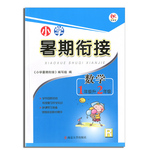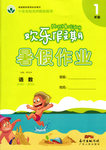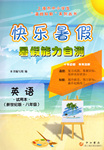题目内容
In reading stories we expect what is to come ________ our memory of what has gone before.
- A.based on
- B.basing to
- C.to base from
- D.to be based in
A项base sth.on…“以……为基础”;常常用被动结构。

 学而优暑期衔接南京大学出版社系列答案
学而优暑期衔接南京大学出版社系列答案 Happy holiday欢乐假期暑假作业广东人民出版社系列答案
Happy holiday欢乐假期暑假作业广东人民出版社系列答案 快乐暑假暑假能力自测中西书局系列答案
快乐暑假暑假能力自测中西书局系列答案This dictionary tells you about English words and how to use them in reading, writing and speaking English. It not only gives the meaning of words, it can also help you with spelling, word building, grammar and pronunciation.
To use your dictionary correctly, you will find two spellings for this word. “Colour” is used in British English, while “color” is used in American English. When there are differences between British and American spelling, the dictionary shows it with the word “BrE” for British English and “AmE” for American English.
The dictionary also helps you pronounce words correctly. If you turn to the inside back face, you will see all the phonetic letters (音标 ) with some words to show you how they are pronounced. Just look at the inside back cover when you're not sure how to say a word.
The most important reason for using a dictionary is to find out the meaning of a word — its definition.
In this dictionary, the definitions have been written using only 2, 000 words. This means that the definitions of even the most difficult words are simple and easy to understand.
1.________ of the words in the dictionary have two spellings.
|
A.All |
B.Some |
C.Few |
D.One |
2.What is the main reason for us to use a dictionary?
|
A.To read the word correctly. |
|
B.To write the word out. |
|
C.To know the meaning of the word. |
|
D.To find the difference between British English and American English. |
3.The phonetic letters helps you ________ each word correctly.
|
A.say |
B.write |
C.understand |
D.know |
4.The Chinese meaning of “definition” here is________.
|
A.词性 |
B.词条 |
C.词义 |
D.词库 |
5.How many words are there in this dictionary?
|
A.Two thousand. |
B.One thousand. |
C.One hundred. |
D.We don't know. |